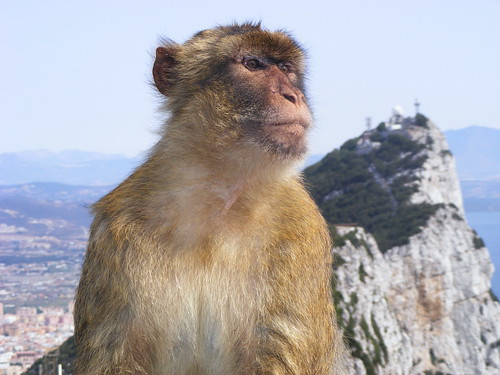Can social media affect human behavior? This was a question posed to me at the Social Media Cafe in Barcelona by Steve Lawson. Steve promotes Amplified, which is a project, co-funded by NESTA (the National Endowment for Science, Technology and the Arts) and Sleepydog, that’s exploring new ways of joining up the myriad disparate networks in the new technology space. (photo by thomashalpin)
 Steve’s position, as I understand it, is that social media only enhances the existing behavior, and cannot necessarily change pre-existing behavior. Put another way, if you are an individual who does not like social interaction, or communicating with people you don’t know, you will most likely not appreciate or use social media. In layman’s terms, if you’re the person power tasting at a wine conference without chatting with the winemaker, or extending a friendly hand to the importer next to you, you most likely won’t find yourself chatting on Twitter either. On the other hand, those who do like to meet new people, enjoy random interactions, and who are generally confident in their opinions will appreciate the applications of social media, using it as a tool to cultivate and instigate conversation.
Steve’s position, as I understand it, is that social media only enhances the existing behavior, and cannot necessarily change pre-existing behavior. Put another way, if you are an individual who does not like social interaction, or communicating with people you don’t know, you will most likely not appreciate or use social media. In layman’s terms, if you’re the person power tasting at a wine conference without chatting with the winemaker, or extending a friendly hand to the importer next to you, you most likely won’t find yourself chatting on Twitter either. On the other hand, those who do like to meet new people, enjoy random interactions, and who are generally confident in their opinions will appreciate the applications of social media, using it as a tool to cultivate and instigate conversation.
Where do I stand on Steve’s argument? Personally, having lived in Iberia, promoting Spanish and Portuguese wine for over 4 years, I have seen people’s passion to learn and communicate about wine increase exponentially as a result of social media.
I have witnessed the shy and reserved use Twitter as a means to share their favorite Cavas, articles on new D.O.s or debate about the structure or acidity of an Alvarinho. Through Facebook, I have read words of wine poetry from people who normally strike me as completely illiterate, astounding Flickr photos of lush Somontano vineyards from those who appear visionless, and aspiring and moving YouTube interviews with sherry winemakers from individuals who are as interesting in person as watching paint dry. Social media has given a voice to the voiceless and a means of expression to those who may normally feel shadowed and isolated in their “real” lives.
According to a study conducted by John Horrigan, Pew Internet Project’s associate director of research:
“The most high-tech group we labeled the ‘digital collaborators.’ The digital collaborators are the ones with the most technology, doing the most with it and loving it the most, and really are about not just using technology to communicate with others but to cultivate their creative lives.”
On the flip side, Steve’s position can easily be supported when looking at Spanish and Portuguese wine blogs. There are several retail, winery and citizen blogs that tend to post canned press releases, or sterile tasting notes, composed by individuals who fear being vulnerable and are uncomfortable with the idea of forming relationships with their customers. Culturally speaking, there is a deep-rooted belief in Latin culture that overt collaboration with consumers—showing your cards, if you will—leads to your competition taking the market share; therefore, social media only enhances a cultural behavior that already exists.
In the end, I don’t think social media’s impact on human behavior is as black and white as we might all desire. The rub lies in how we use it as a tool to both better our own lives, and the lives of our community. I want nothing more than to help the international community experiment, play and learn about Iberian wine, and whether that occurs through social media or one-on-one interactions is irrelevant to me. What is important is that we don’t diminish the power of this influential tool to offer more comprehensive information, broaden education, and most importantly, bridge cultural boundaries in ways that could never have been done before.
— Gabriella Opaz is the co-owner of http://Catavino.net, a website dedicated to educating consumers about Spanish and Portuguese wine.
